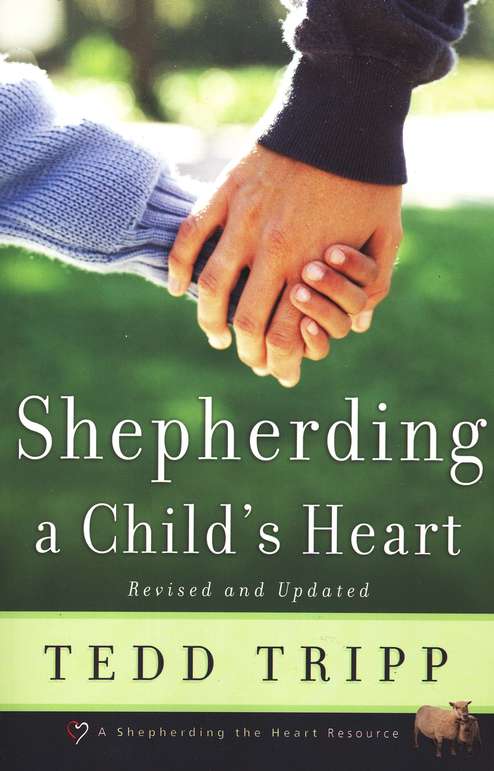 In our continued synopsis of Tedd Tripp’s book “Shepherding A Child’s Heart,” we are now up to Chapter 2 – “Your Child’s Development: Shaping Influences.”
In our continued synopsis of Tedd Tripp’s book “Shepherding A Child’s Heart,” we are now up to Chapter 2 – “Your Child’s Development: Shaping Influences.”
This chapter deals with the shaping influences in a child’s life. Mr. Tripp defines shaping influences as,
“those events and circumstances in a child’s developmental years that prove to be catalysts for making him the person he is.”
Mr. Tripp explains that the person our child becomes is ultimately the product of two things:
1. His Life Experiences; and
2. How the child interacts with those experiences
Our children’s interactions with their shaping influences is dealt with in Chapter 3 of the book, and we will deal with that in the next installment. Mr. Tripp identifies six shaping influences in our children’s lives. He points out that most of these are “both within and outside parental control:”
1. Structure of Family Life
How is the family set up? Is it traditional? How many parents in the home? How many generations? How many kids in the family? What is their birth order? All of these impact our view of life when we get older.
2. Family Values
Mr. Tripp explains that every family has certain boundaries regardless of whether those boundaries are spoken or not. However, the core point is whether or not your values are: “based on human tradition and the basic principals of this world or on Christ?”
3. Family Roles
Are there specific roles which each family member plays? Some fathers are removed and distant while others are involved in every aspect of family life. In some families the father pays the bills, in others the mother. Children also tend to have specific roles in the family.
4. Family Conflict Resolution
Do the members of the family know how to discuss their problems? Are problems resolved or ignored? How does the Bible factor into conflict resolution? Tripp concludes: “A child is trained to be a fool or be prudent, wise man by the shaping influences of the home.” Ouch!
5. Family Response to Failure
Children are influenced by how their parents deal with the children’s failures. Are failures mocked and made fun of, or do the parents find an opportunity for praise even in the midst of failure?
6. Family History
Things like births, deaths, moving, money, health and more are all part of our family history, and they can have a profound impact on how our children grow up.
Tripp then explains two mistakes which are frequently made when it comes to dealing with shaping influences:
- Seeing shaping influences as deterministic; and
- Denying the impact of shaping influences.
Tripp concludes the chapter with a transition to Chapter 3. He explains, “Children are never passive receivers of shaping. Rather, they are active responders…the child is never determined solely by the shaping influences of life…Your child’s heart determines how he responds to your parenting.” Next time we will look at two possible responses to shaping influences.
Personal Observation
No matter what mistakes we have made in the past with our children, and no matter what circumstances we may be reaping because of those mistakes, the important thing to remember is that it is never too late change those shaping influences which are under our control. Our God is, after all, a God of second chances!
<<LAST TIME: Chapter 1 – Getting to the Heart of Behavior
Chapter 3 – Your Child’s Development: Godward Orientation: NEXT TIME>>

